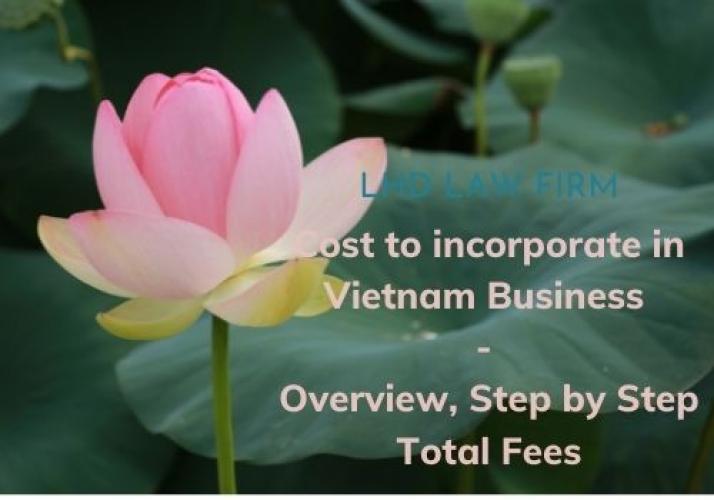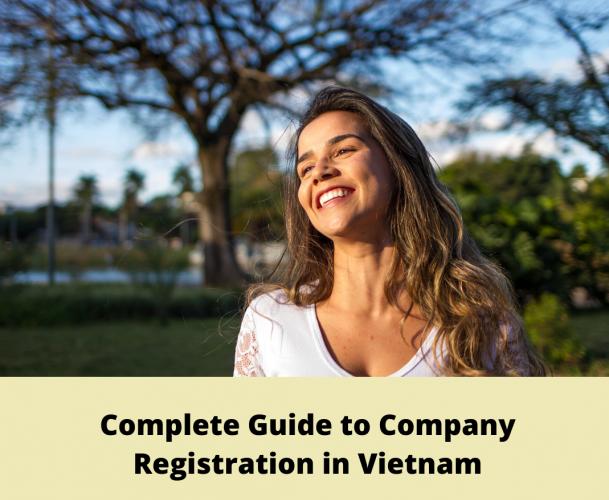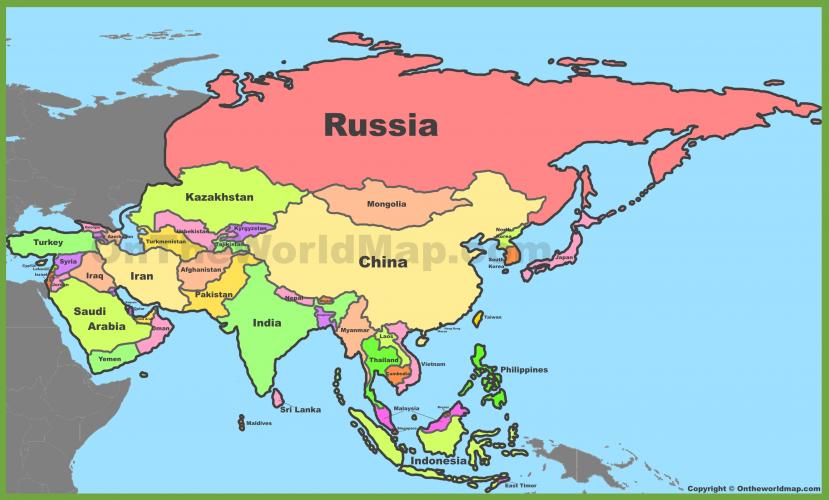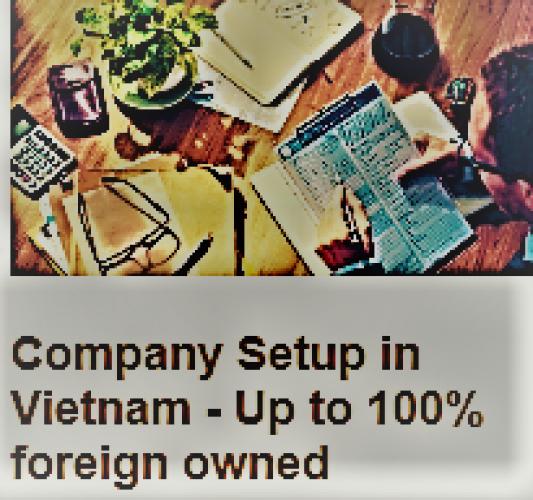Why You Should Invest In Vietnam ?
- 01/01/1970

Company formation in Vietnam, with comprehensive and adequate knowledge of legal as well as the business environment in Vietnam. LHD Law Company Ltd can provide clients with legal advisory opinion most helpful in all areas of investment, established companies with foreign investment capital in Vietnam:

- Apply for investment license (certificate) for investors who are individuals, organizations and foreign companies in Vietnam;
- Apply for investment license (certificate) associated with the establishment of projects, enterprises and foreign affiliates for individual investors, institutions, foreign companies in Vietnam;
- Registration of business lines, operation contents for investment projects, enterprises, branch associated with investment projects for private investors, institutions, foreign companies in Vietnam;
- Registration of application for import and export, distribution, wholesale, retail;
- Registration for examination of investment projects.

Setting up a company with new law in Viet Nam
With an aim to aiding foreign investors in overcoming bureaucratic bottleneck and allowing Vietnam to quickly open and integrate its market into the global market, Vietnamese government has issued new Law on Investment and Law on Enterprises, which are expected to take effect in July 2015. The article will highlight some key changes in these amendments.
A. Law on Investment.
1. A better definition of a foreign investor: The 2014 Law introduces a simpler and clearer definition of foreign investor and also clarifies the differences between “foreign investor” and “foreign-invested economic organization” which replaces the term “foreign-invested enterprise” in the 2005 Law.
– A foreign investor is now defined as an individual holding a foreign nationality or an organization established under foreign laws and making business in Vietnam.
– A foreign-invested economic organization (FIEO) is broadly defined as an economic entity which has any member or shareholder is a foreign investor.
Under the 2014 Law, an FIEO shall be subject to more stringent licensing requirements and other restrictions applicable to foreign investors if:
(i) 51% or more of its charter capital (i.e. share capital) is held by foreign investors; or the majority of the general partners are foreigners if the business organization is a partnership;
(ii) 51% or more of its charter capital is held by an economic organization under paragraph (i) above; or
(iii) 51% or more of its charter capital is held by a foreign investor and an economic organization under
paragraph (i) above.

2. New classification of investment types: Investment in Vietnam is no longer classified into direct or indirect investment, but depends on either of the following forms:
(i) Establishment of an economic organization for an investment project;
(ii) Capital contribution, purchase of shares or contributed capital in an economic entity.
(iii) Investment under cooperation contract (Public-Private Partnership; Business Cooperation Contract).
3. Relaxation of licensing requirements: Under the 2014 Law, an Investment Certificate (IC) has been replaced by an Investment Registration Certificate (IRC), and an FIEO is only required to obtain an IRC if it falls into one of the three circumstances stated above.
The application process is now a two-stage process, with the time period to complete the licensing process reduced to 15 days:
(i) Obtain IRC;
(ii) Obtain Enterprise Registration Certificate (ERC))
However, for M&A activities, unless the foreign investors invest in a conditional investment project, the M&A activity may be conducted solely under the Enterprise Law. As such, the requirement to obtain an IC to close an M&A deal, the most troublesome condition under the current law, is abolished.
4. Opening up of investment sectors: The number of prohibited business activities is reduced from 51 to 6 activities, and the number of conditional business activities also decreases from 386 to 267 activities. Notably, the 2014 Investment Law takes an initiative approach that allows investors to do investment and business activities in fields not prohibited by the 2014 Investment Law.
5. Dispute settlement: Under the new law, only foreign investors or FIEO with 51% or more of chartered capital can choose foreign arbitration and/or international arbitration to settle their dispute over business investment.
6. Transitional provision: Any investor who was granted IC before July 1st 2015 may keep executing their investment project without the need of registering for a new IRC. However, a new IRC shall be granted if requested by the investor.

B. Law on Enterprises.
1. New definition of foreign investors’ holding: the 2014 Law defines foreign investors’ holding as the total holding of voting capital of all foreign investors in a Vietnamese company, instead of total holding of charter capital specified under the 2005 law.
2. Simplification of license requirements: The new law removes the scope of business activities of an enterprise and the list of founding shareholders of a joint stock company (JSC) from the ERC. The business activities of enterprises will be posted on the National Business Registration Portal. If an enterprise changes its business activities, founding shareholders or foreign shareholders, it must notify the corporate registration authority to update its corporate registration records, but does not need to register for an update of its ERC as required under current laws.
3. Enterprise’s seal: Under the new law, an enterprise is entitled to decide the form, quantity and contents of its seal. The management, usage and retention of the seal must be stated in the company’s charter. Before using the seal, an enterprise must send the seal design to the business registration authority to be posted on the National Business Registration Portal.
4. More than one legal representative permitted: The 2014 Law allows a JSC or limited liability company (LLC) to have more than one legal representative and only one of them is required to reside in Vietnam. If a JSC has more than one legal representative, the chairman and the general director must both be legal representatives.
5. Change of requirements on charter capital of LLC.
Under the 2005 Law on Enterprises, a one-member LLC is not permitted to reduce its charter capital. The New Law now permits a one-member LLC to reduce its charter capital in certain circumstances. Additionally, full payment of the registered charter capital of an LLC must be made within 90 days of the issuance of the ERC (in contrast to the 36 months’ period under the old Law on Enterprises) or the actually paid charter capital must be registered as adjusted charter capital.
6. Lower quorum and voting thresholds: In multi-member LLCs, the quorum of the meeting of the Board of members and the voting threshold for circular resolutions are reduced to 65% of the charter capital from the current 75% requirement.
In JSCs, the quorum of the general meeting of shareholders (GMS) and voting threshold for circular resolutions of shareholders is reduced to 51% of the voting shares from the current 65% and 75% requirement respectively. At a GMS, the voting threshold is reduced to 51% of the voting shares of attending shareholders from the current 65% for ordinary matters and to 65% of the voting shares from the current 75% for reserved matters.
7. New definition of State-owned Enterprises (SOE): The new Law defines an SOE to be an enterprise wholly owned by the State, thus, allowing former SOEs to operate as private or JSCs subject to new rights and obligations.










0 comment